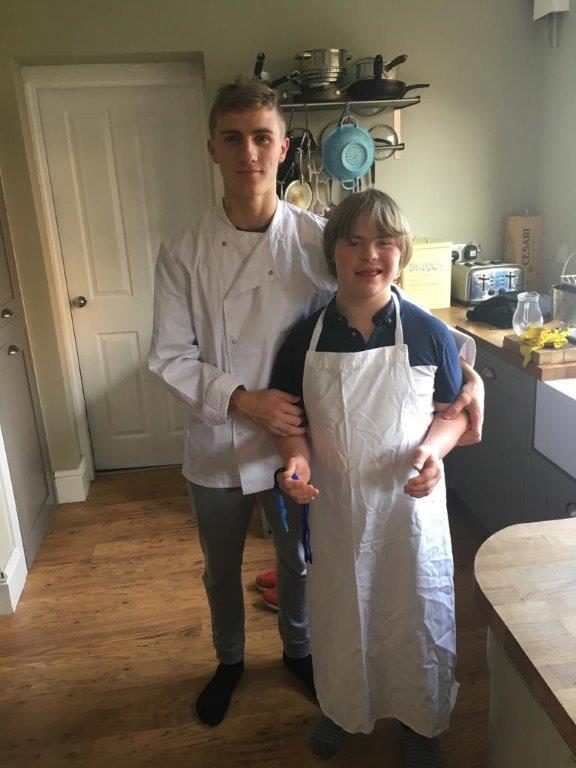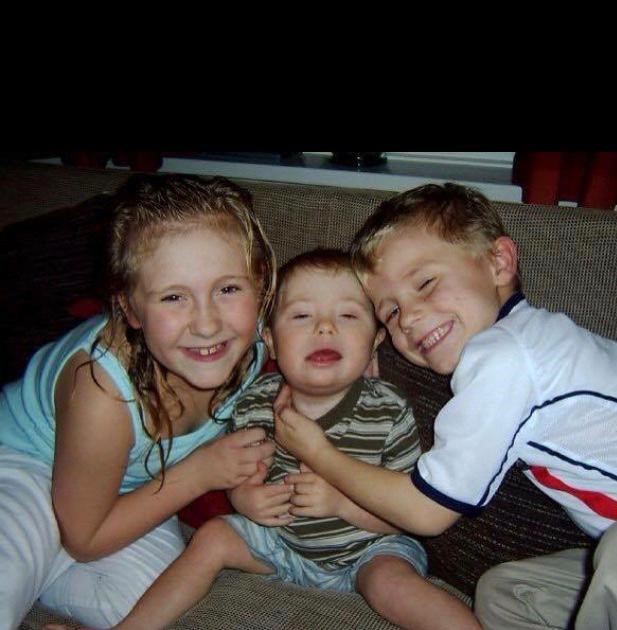Hi, I'm Debbie. I work in the Newcastle-based Business Support team at BPDTS. I’m a carer for my son Joel who was diagnosed with Down's Syndrome 48 hours after his birth. Joel has two older siblings Remi and Jake. I’m sharing my story to help raise awareness for carers during Carer’s Week.
Staying informed my way of 'coping'
Before Joel's birth, my experience with people with Down syndrome was minimal; I immediately began learning everything I could to understand his diagnosis better. I devoured books, articles, joined support groups, and even decided to return to university to study Disability.
Mum, carer, expert
A carer is someone who provides unpaid care and support to a family member or friend who has a disability, illness, mental health problem or needs extra help as they grow older. At first, I never thought of myself as a carer. I was Remi, Jake, and Joel's mum, but as a single parent of a child with special needs, I found caring for him emotionally exhausting and becoming an 'expert' in his diagnosis.
Drifting on automatic pilot
As a baby, Joel had numerous health issues, including obstructive sleep apnoea, respiratory infections, pulmonary issues, and developmental issues. These conditions culminated in appointments, appointments, and more appointments!
Dealing with all this and trying to keep my other two children's life 'normal' put a strain on my own mental and physical health. I spent the first 2 years of Joel's life 'drifting,' literally, everything was done on automatic pilot.
Managing extreme neurodiversity
As Joel grew up, he became more difficult to manage by the age of 4, and I had the Community Behavioural Team involved. They would come to my home 5 days a week to support me get Joel from the front door into the taxi for school – a distance of 4 metres; he couldn't do it.
Joel's struggles were not because of physical impairment; he struggled with transitions, behaviours, sensory issues, communication, and social interactions. The scenario went on for at least 8 months; we never cracked it.
Stages of development
Fast forward 7 years of meltdowns, absconding, and round the clock attention (zero sleep). Joel was diagnosed with Autism. Joel's condition meant he was extremely sensitive to any changes. In the next few years, Joel became bigger, stronger, more aggressive, and developed challenging behaviour.
Joel was admitted to a children's psychiatric assessment unit at the age of 14 for further observations. He spent 12 weeks there, and his visit resulted in recommendations for Joel to live in a residential setting with 24-hour care.

Joel is 18 now and ready to move into adult services. Social services are building him a bespoke house with rubberised walls, viewing panels in every door, a wet room, and a huge garden. His care team has been recruited, and he is expected to move in November, all being well.
A family affair
My caring role became a natural part of my life, as well as my children's lives. They evolved into amazing young carers, providing Joel with an infinite amount of love and support. They were as much on the frontline, giving their attention to him daily like me.

We’ve all dedicated our lives to ensure Joel can 'access the world' as much as possible. We want him to enjoy a good quality of life. Over the years, I've given up careers, relationships, and opportunities, but I wouldn't have it any other way.
Caring has transformed me
Caring has completely transformed my life and personality. I'm richer for the experience. I never take anything for granted and appreciate every moment. Since becoming a carer, I’ve experienced a deep sense of humility, valuing life experiences. I encourage Remi and Jake to do the same.
Permission to pause
It's an honour and privilege to have Joel in my life. While learning how to look after Joel, I've also had to learn how to look after myself. Never underestimate the value of making time for yourself as a carer. We all need respite and to be able to permit ourselves to pause. Making time for yourself is an affirmation of life.
Support for carers
The theme for this year’s Carer’s Week, led by Carers UK with five supporting charities including Age UK, Carers Trust, MND, Oxfam GB, and Rethink Mental Health, is Make Caring Visible. Around 9.1 million people in the UK are carers, looking after a parent, partner, child, or friend. More than 62% of these individuals are juggling caring responsibilities with work.
Since the Covid-19 pandemic, more than 4.5 million additional people are caring for older, disabled, or seriously ill relatives or friends; as the impact continues, these figures are likely to rise. Having a supportive employer that allows flexibility around caring commitments such as appointments and emotional stresses, is more critical than ever.
The Carer's Passport
Since joining BPDTS, I’ve felt supported in every way. I have a brilliant relationship with my manager at BPDTS. They go out of their way to understand my situation and give me all the support I need to care for my Joel and the rest of my family, look after my own wellbeing and be successful in my job.
Within my first week, I completed a Carer's Passport. The purpose of the passport is to enable myself and my manager to hold a supportive conversation, documenting the flexibility I need to support both my work and caring responsibilities. The passport is a document I can bring with me every time I change roles or managers. The Carer's Passport is my personal document.
Spinning plates, maintaining balance
Being in a caring role is like spinning plates. Working in a supportive environment is what helps keep our plates in a steady motion. I’d encourage anybody who has caring responsibilities to explore what’s possible with your manager. The Carer's Passport can help create a more care-friendly workplace; it’s a great place to start the conversation.
Learn more about BPDTS
Stay up to date with what's happening at BPDTS. Sign up for email updates whenever new content is posted.
Connect with us on LinkedIn, and follow us on Twitter.
Are you thinking of joining us? Please have a look at our current job openings.
Leave a comment